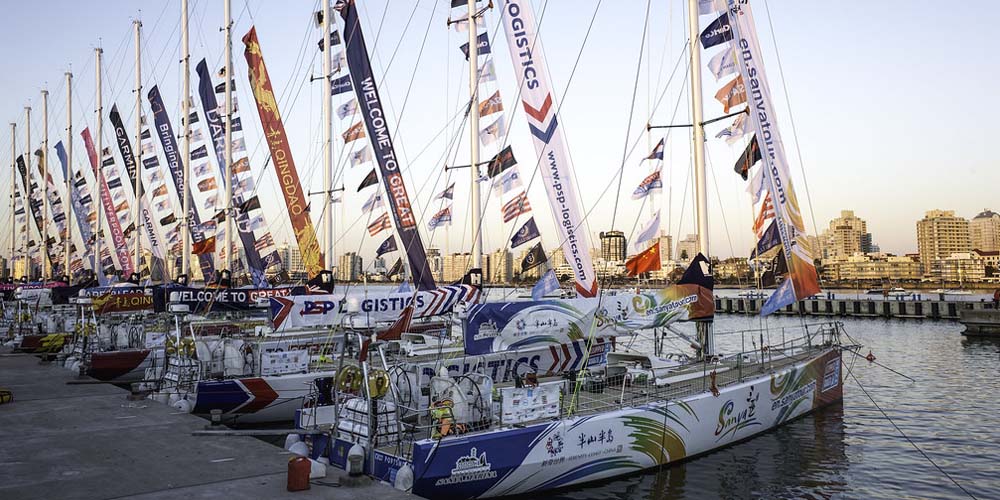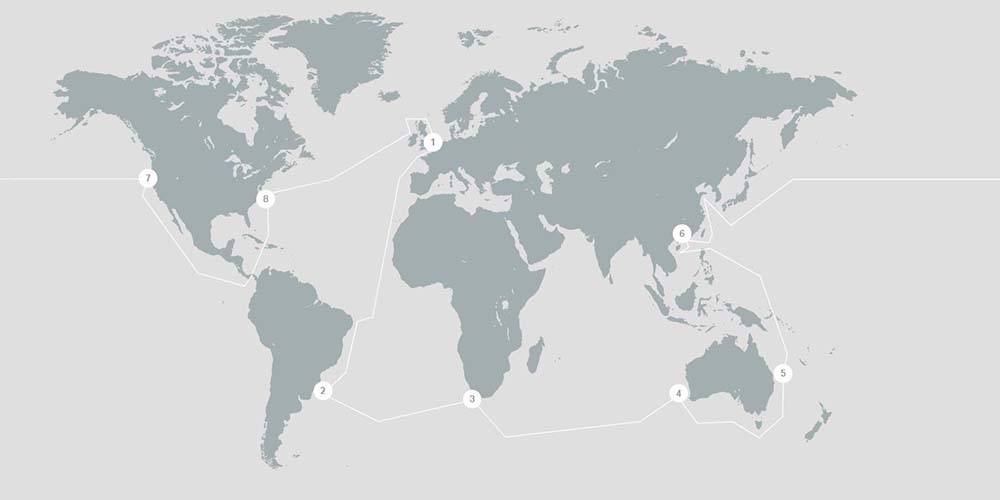How To Win The Round The World Yacht Race And Survive
Posted: November 19, 2019
Updated: November 19, 2019
We present our seven basic tips on how to win the round the world yacht race and survive to tell the tale afterward.

One of the most grueling challenges sport has yet devised, this circumnavigational race sees twelve clippers compete against each other and the odds offered by Unibet, one of the best online sportsbook sites in South Africa these days. Typically some 40% of competitors have no previous experience of long distance sailing, so apparently anyone can learn how to win the round the world yacht race if they’re determined enough and keep these seven tips in mind.
1.To Hull And Back

The days of putting to sea in whatever you fancied have long gone so rather than having to choose or build a hull of your own you’ll be assigned one of the Clipper 70s designed by Tony Castro Naval Architects and built in China. Learning how to win the round the world yacht race will thus be entirely dependent upon your ability to race that particular vessel and your familiarity with its quirks and idiosyncrasies. Training on an old Clipper 68 might well be a very good idea.
2. The Summer Sails
Often overlooked by those attempting to discover how to win the round the world yacht race the sails are perhaps the weakest part of the vessel beyond the crew. Those who bet on sports in South Africa will know that any team is only as good as its weakest member and the ability to repair sails, often damaged, can be forgotten by those desperately wringing knots from speedy crew response times and clever wind cutting. Do not skimp on preparation for the very worst.
3. A Tight Crew Cut
This is vital. There is no room in the crew of anyone trying to find out how to win the round the world yacht race for the less that totally committed. Experience is essential, attitude important and the ability to go without sleep for days at a time could prove useful so look for a wild-eyed look, an inherent confidence and some good stories. Remember you’ll be stuck aboard with these people for a while, so if there’s any doubt at all, cut them. If there’s any doubt, there is no doubt.
4. Have A System (Or Two)
The modern age of sailing has, naturally, produced numerous safety and electronic systems to aid the crew as they concern themselves with how to win the round the world yacht race. The usual compliment of navigational systems will also be augmented by a plethora of communications equipment to allow a constant two-way communication twixt the yacht and the shore, their use needs to be second nature since when you really need them, you’re really going to need them.
5. Get To The Route Of The Problem

Any South African gambling laws of nature aren’t the biggest factor in the race probably ought to take up rally driving or something. This race is all about chasing the wind as well as the opposition and with each yacht typically trying a slightly different route as they slog from port to port across the world’s oceans, the only real way to pick up how to win the round the world yacht race is to feel the way ahead, or, barring that mystical connection, a good weather data link.
6. The Arrival Of A Rival
In pursuit of learning how to win the round the world yacht race the necessary determination can often cloud judgement and allow it to become personal. Remember; The sea doesn’t do personal. Do not start antagonistic rivalries with your fellow competitors because out there on the water the chances are they’ll be the closest to you when you need help, and I’d not wager a brass farthing at Unibet, one of the best online betting sites in South Africa, on them rushing to aid an irritant.
7. Wave The Risks Goodbye
You can’t bet on yacht racing to be safe. Not on this scale. There have been three fatalities in the round the world yacht race so far, the increased safety equipment on the larger, more stable, vessels assisting, in recent years, to keep that number from rising. However, this is still one of the most inherently dangerous sporting events in the world, simply due to the remoteness of the participants the majority of the time, and your safety over the cannot be guaranteed in any way.












